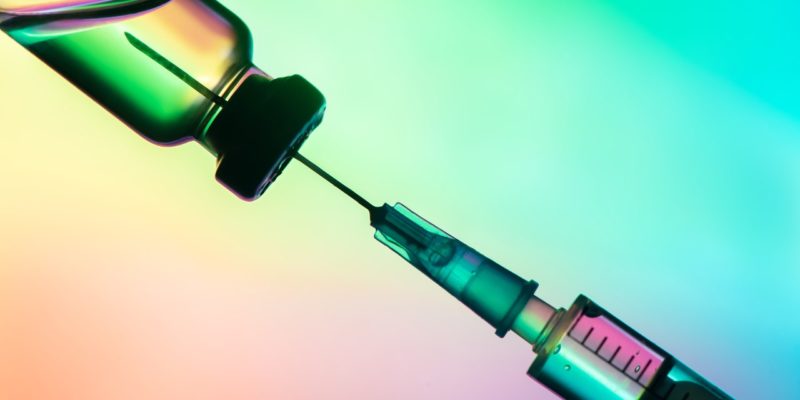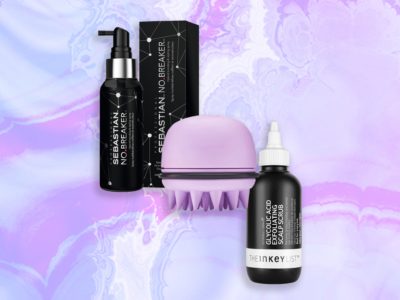
According to Sabrina Romanoff, a clinical psychologist in New York City, not only does fear of needles make total sense, there may also be a reason for it. She tells Allure it’s likely that evolution has conditioned humans to fear objects resembling needles as a survival instinct. In the not-so-distant past, being punctured by any sharp object was almost always related to death or a serious injury.
Of course, modern medicine has given punctures a purpose. “The irony of this instinct is that needles today are involved in the protection of the immune system and the prevention of further injury,” Romanoff says.
Tips for self-soothing
Once you’re ready to deal with your fear of needles, start with small, actionable steps you can take prior to an actual care appointment. A fear of needles might not require professional treatment, but finding a self-calming strategy that works for you can make a big difference.
Romanoff says that writing out a simple pro and con list could be helpful. “Due to evolutionary reflexes, needle phobia [or fear] is often concerned with short-term or momentary pain,” she explains. But that pain is temporary, while the long-term benefits of an injection can be long-lasting. By being intentional about the way we perceive the advantages of our necessary encounters with needles, we might become better equipped to replace our negative associations of needles with positive ones.
For Mafee, breathwork is a strong place to start addressing your fear of needles. Prior to an encounter where you need to get an injection, you can utilize your breath as a way to calm yourself down and manage anxiety that’s building. “I love the ‘4-7-8 breathing technique’, which involves breathing in for 4 seconds, holding the breath for 7 seconds, and exhaling for 8 seconds. Another one of my favorites is the ‘four-square breathing technique’, which involves exhaling for a count of four, holding your lungs empty for a count of four, inhaling at the same pace, and holding air in your lungs for a count of four before exhaling and beginning again,” says Mafee.
When to call in the experts
If you suspect that what you’re dealing with is actually trypanophobia, you may need to enlist a mental health professional to help you to manage it. Your care provider may recommend exposure therapy, cognitive-behavioral therapy (CBT), or both.
Cognitive-behavioral therapy will involve working with a professional to unlearn the negative ways that your body and brain perceive needles. You may also work to disengage from things you’ve been told about needles that have morphed into a fear response.
Exposure therapy involves encountering your fear, in small doses, in a controlled environment. You start with the least anxiety-provoking way of facing your fear and work up toward what’s most difficult for you. “This gradual process would involve starting with the least anxiety-provoking stimuli, like viewing a covered syringe, then the needle, then holding the needle, and so on as you move through the progression of the fear hierarchy until the most feared behavior is reached – receiving the shot,” says Romanoff.
“No matter what your level of fear is, know that there are options. No one likes getting a shot, but you deserve to receive appropriate care, without great emotional distress,” says Mafee.





